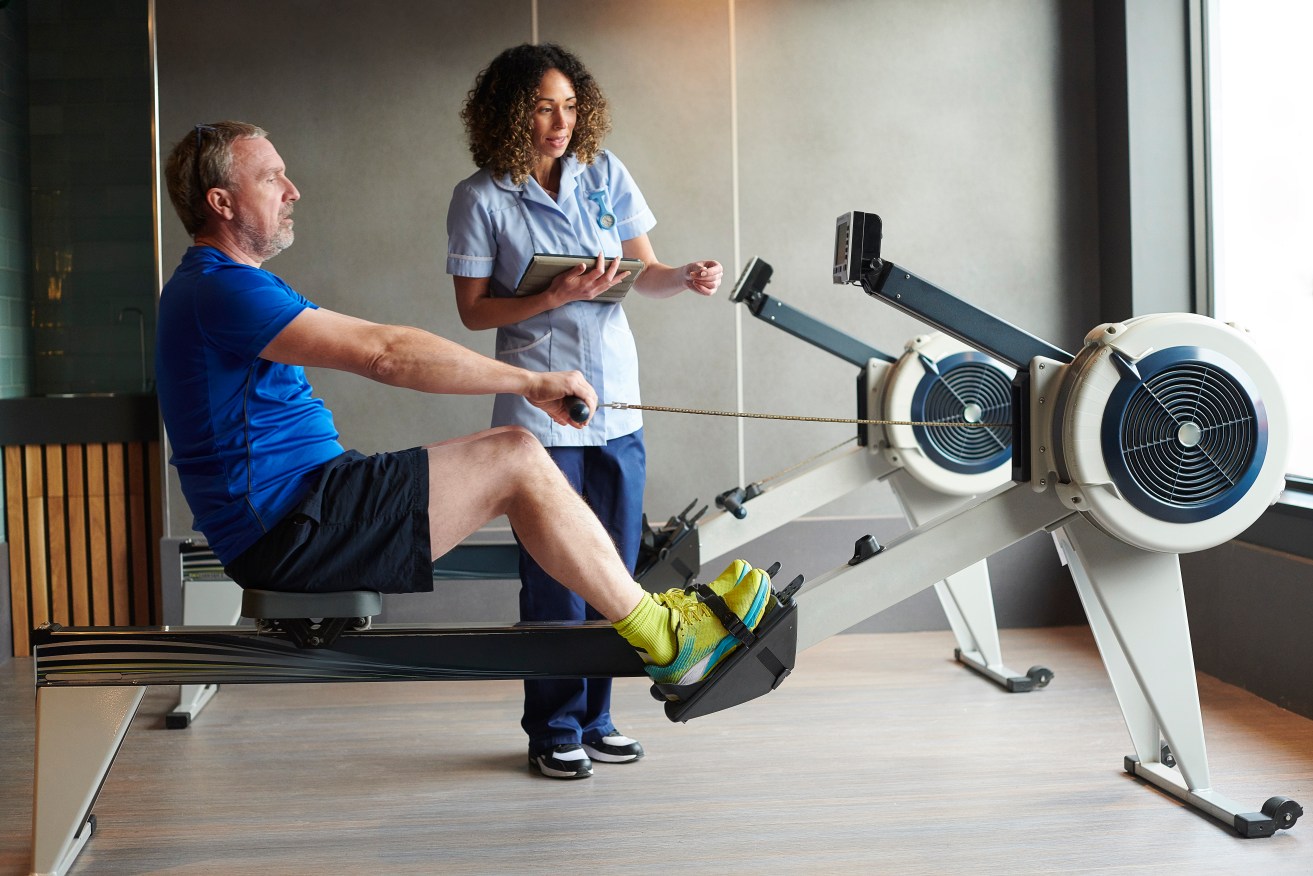Exercise before surgery: Better recovery and fewer complications


A new study found that exercise before surgery led to a 56 per cent drop in post-operative complications. Photo: Getty
In the lead up to having major surgery, many people are likely to feel fragile and unmotivated.
Certainly, many lack the confidence to engage in a high-intensity exercise program.
The overall feeling might be that you’re simply too unwell to get the heart racing. The idea of training for surgery seems laughable.
But 20 to 50 per cent of patients undergoing surgery develop post-operative complications. These result in a longer stay in hospital and an increase in costs.
A new study from New Zealand has found that a short program of high-intensity interval training (HIIT) before surgery reduces the risk of having a complication by 56 per cent.
Physical costs of surgery
More to the point, patients who have had major surgery tend to suffer prolonged physical fatigue and physical inactivity, loss of muscle mass and overall conditioning, and poor quality of life.
They’re also at greater risk of pulmonary complications, such as pneumonia.
This is certainly the case for patients who had poor physical fitness before surgery.
Evidence for ‘prehabilitation’
You might have undergone rehabilitation as part of your recovery after surgery or trauma.
People who have undergone knee or hip replacements are routinely encouraged to engage in a program of rehab.
This can occur either at home (preferably with visits from a physiotherapist) or in a dedicated hospital setting.
The concept of prehabilitation is about the training you can do to withstand the physical and psychological stresses of surgery.
Prehab helps you maximise your chances of a successful and easier recovery.
An important aspect of prehabilitation is boosting your heart and lung function. This is because your heart and lungs have to work harder after surgery to help your body heal.
One of the hot questions about prehab is what kind of exercise is best – moderate, frequent and steady, or bouts of greater intensity.
High-intensity workouts
The idea of high-intensity exercise before surgery might seem a little absurd. Some walking or swimming, sure. But high intensity?
The New Zealand study not only found that high-intensity interval training (HIIT) before surgery reduces the risk of having a complication by 56 per cent – but study patients who followed the HIIT program spent, on average, three days less in hospital.
HIIT involves repeated aerobic high-intensity intervals at about 80 per cent of the maximum heart rate followed by active recovery – which simply means moving around instead of sitting down.
Study participants
Researchers from the Department of Surgical Sciences, Otago Medical School, reviewed and analysed 12 studies including 832 patients who had undertaken preoperative high-intensity interval training.
Lead investigator Dr Kari Clifford said the study included all types of major surgeries – those expected to last more than two hours or with an anticipated blood loss of greater than 500ml – and included liver, lung, colorectal, urologic and mixed major abdominal surgeries.
The average age of participants in the intervention group was 66.
“We have found that high-intensity interval training is safe and effective for surgical patients,” Dr Clifford said.
And those who undertook HIIT prior to surgery, “showed a consistent reduction in post-surgery complications, such as cardiac complications, pneumonia and post-operative bowel issues”.
Just a few weeks training
Dr Clifford said a HIIT program “can meaningfully improve a patient’s fitness within four to six weeks, and this reduces post-operative complications and length of stay”.
She said the most significant result was the change in cardio-respiratory fitness – a measure of how well the body takes in oxygen and delivers it to the muscles and organs during prolonged periods of exercise.
The next step is to find out how to implement such programs and keep the costs down, Dr Clifford said.
“Supervised exercise programs can be expensive, so we are looking at how effective it is to support people training at home or in the community.”








